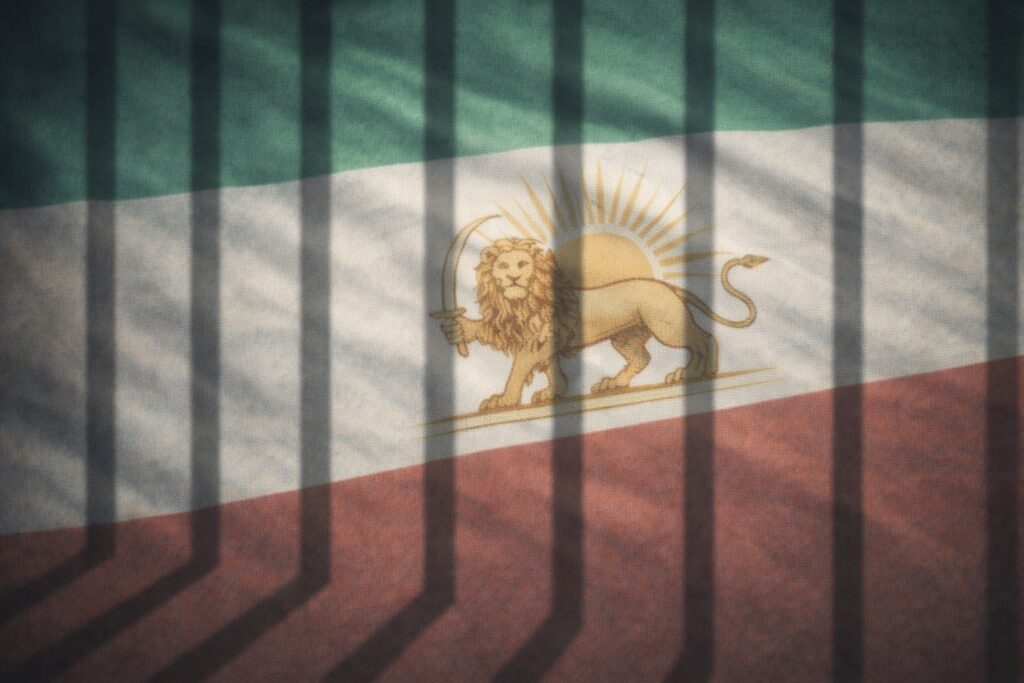UPDATES
The aftermath of passage of one judicial reform bill in Israel
August 1, 2023 | AIJAC staff


Update 08/23 #01
Last Monday, July 25, the Israeli Government succeeded in passing one element of its controversial judicial reform package – the so-called “reasonableness clause”, forbidding the Supreme Court from using the test of “reasonableness” in assessing Governmental administrative decisions, executive actions and appointments. This Update looks at exactly what was passed, the ongoing mass opposition to the reform package in Israel, and what might happen now.
We lead with a BICOM summary of exactly what happened in the Knesset on July 25, what various actors inside and outside Israel said about it, and where things might go from here. The piece also talks about rumours that PM Netanyahu would have preferred to pass a compromise bill more acceptable to the Opposition, and this was also urged by Defence Minister Yoav Gallant, but other coalition members threatened that they would bring down the Government if such a compromise occurred. The piece also notes that the Knesset will now recess until late October – so no more bills can be passed before then – and Netanyahu has called for new talks about a compromise during that time. For all the essential details, CLICK HERE.
Next up is lawyer Daniel Pomerantz explaining the details, background and legal implications of the actual bill that was passed. He reviews the fact that Israel has no constitution, and instead relies on “Basic Laws”, and explains where the new law fits into that framework and Israeli Supreme Court practice. He notes the Court will now review the new law in a case to be heard in September, and could strike it down, but also noted that the Supreme Court still has considerable power to overturn government decisions even without using “reasonableness” – For this essential guide to what exactly was passed last Monday, CLICK HERE.
Finally, former Jerusalem Post editor Yaakov Katz looks at the status of Netanyahu, his Government, and the country as a whole in the wake of the passage of the “reasonableness” legislation last week. He argues that, regardless of what one thinks of the reform proposals, the way they have been handled has been a “lose-lose” situation for both Israel and the Government. Katz makes the case that, if not for the extremism of the original reform package introduced by the Government, the specific bill just passed could have gotten through with only limited opposition, rather than the massive opposition and anger it created. He suggests ways Netanyahu can start to heal some of these rifts now. To read his insightful views in full, CLICK HERE.
Readers may also be interested in…
- Some valuable thoughts on the social divide behind the political divide in Israel over judicial reform, from former Israeli diplomat and historian Michael Oren.
- A Jerusalem Post editorial about the economic costs and risks of the current standoff over judicial reform in Israel. More on these economic repercussions comes from BICOM.
- US President Joe Biden says a Saudi-Israeli normalisation deal may be “under way.” Biden has sent some key advisors to Riyadh, and Israeli leaders like Foreign Minister Eli Cohen have also suggested normalisation could soon arrive, while the head of Israel’s Mossad intelligence agency was just in Washington to discuss a potential normalisation.
- Some insider sources nonetheless remain sceptical that any such normalisation deal is imminent.
- David Cumin of the Israel Institute of New Zealand details his country’s very poor record of recognising Israel’s right to defend itself.
- Some examples from the many stories and comments now appearing at AIJAC’s daily “Fresh AIR” blog:
- AIJAC Research Associate Dr. Ran Porat looks in detail at the security implications of the recent divisions over judicial reform in Israel, especially the refusal of some Israelis to undertake voluntary reserve service in the IDF in protest.
- AIJAC’s media release on the passage of the “reasonableness” bill in Israel last week.
- Law professor Greg Rose urges the Australian Government to make a submission to the International Court of Justice in the Hague calling for it to reject a politicised call from the UN General Assembly to issue an “Advisory Opinion” condemning Israel for its treatment of Palestinians.
- Two short videos from recent AIJAC webinar guest – and former Israeli Defence Minister – Moshe “Bogie” Yaalon: one on Iran’s Nuclear Project, and one on “Israel’s existing security challenge – acceptance of Israel as the nation-state of the Jewish people.”
Knesset votes to cancel reasonability clause
BICOM, July 25, 2023
What happened: The government passed its amendment to Basic Law: The Judiciary, that cancels the use of reasonability when judges review governmental decisions.
- Despite hopes of a compromise leading up to the vote, the efforts failed and in the end the opposition walked out of the Knesset ahead of the vote, allowing the coalition a 64-0 victory.
- Cancelling the clause means the High Court of Justice will be unable to apply the test of reasonability to challenge government decisions or appointments.
- Following the vote, the protests grew and continued late into the night. In several places clashes broke out between anti-government protesters and the police. In central Tel Aviv hundreds of people blocked traffic on the main Ayalon motorway, with eighteen people arrested after police horses were deployed and water cannons sprayed putrefied ‘skunk spray’. Protest organisations said 32 demonstrators were wounded, 19 of whom were taken to hospital.
Reactions: Prime Minister Netanyahu called the move, “a necessary democratic step, one designed to restore a measure of balance between the authorities… We passed the amendment to the reasonableness standard so that the elected government will be able to lead policy according to the will of the majority of the citizens of the state.”
- Leader of the Opposition Lapid said, “We saw today Netanyahu’s unprecedented performance of weakness. There is no prime minister in Israel. Netanyahu has become a puppet of messianic extremists.”
- Head of the National Unity Party Gantz said, “Anyone who thinks he won today will soon discover that this was a terrible mistake for all of us. I am a man who has known battle; I say to you today: We may have lost the battle, but we will all win the war. We will do whatever it takes to reverse course and to fix things. That will happen. Everything that passed today will be annulled and erased from the statute books. Sooner or later.”
- The White House issued a statement, “As a lifelong friend of Israel, President Biden has publicly and privately expressed his views that major changes in a democracy to be enduring must have as broad a consensus as possible.”

Protestors against the judicial reform bill demonstrating near the Knesset on July 24 (Photo: Shutterstock, Eliricon).
Context: One of the most striking images from the Knesset yesterday saw Defence Minister Gallant’s failed last-minute attempts to convince Justice Minister Levin to soften the text, whist Prime Minister sat between them.
- It is thought that Netanyahu would also have preferred a softer version to pass, but when faced with threats from Minister Ben Gvir that if amended, his party would resign and bring down the government, Netanyahu chose survival and sided with the hardliners.
- On one level it has been argued that it was a rare moment that Netanyahu looked weak, perhaps deliberately, so not to be seen as leading the initiative, but rather captive to his own government.
- Unlike the anonymous vote for the Judges Selection Committee, this time all 64 coalition MKs voted in unison.
- However, this vote has further exposed the deepest social rift the country has known since its founding.
- Prior to the vote, the IDF Chief of Staff had requested a meeting with the prime minister but was rebuffed and only met later in the day. However, high-ranking senior officers briefed ministers and warned them of the security ramifications:
- The army is concerned that the divided country will signal a loss of deterrence and embolden Israel’s enemies.
- The division among the forces would have operational repercussions.
- The loss of judicial independence could make it easier in the future to put IDF figures on trial in the Hague.
- Head of the Mossad David Barnea reportedly reassured colleagues that the organisation would be ”on the right side of history” should a constitutional crisis emerge. He was quoted saying, “We serve a democratic state and are not currently in a constitutional crisis. If we find ourselves in one, we will act according to legal counsel.”
- There is also concern over the economic fallout of the decision. The shekel fell again against other foreign currencies, as did the Tel Aviv stock exchange.
- There are ongoing concerns over what the consequences of increased uncertainty will be on foreign investments and Israel’s foreign credit rating.
Looking ahead: The government’s vote will now be challenged in the High Court – a process that could take a few months.
- Lapid meanwhile has called on members of the IDF reserves to wait until the High Court of Justice has a chance to rule before deciding to suspend their ongoing service.
- It will be up to the government if it wants to test the new law, possibly by re-appointing Aryeh Deri as minister or carrying out the threat to dismiss the attorney general.
- The Knesset soon goes into summer recess until mid October. Netanyahu hopes to make use of the time to reach a consensus with the opposition over other components of judicial reform.
Balance of Chaos: A Lawyer Explains Israel’s Judicial Reform
by Daniel Pomerantz
Algemeiner, July 27, 2023

Israel’s Supreme Court at a hearing earlier this year when it annulled the appointment of Aryeh Deri, twice convicted of corruption, as a Minister, basing its decision partly on grounds of “reasonableness.” (Photo: Eddie Gerald / Alamy Stock Photo)
On Monday night, as hundreds of thousands of protesters took to the streets all over the country, the Knesset voted to end the Israeli Supreme Court’s use of the “Reasonableness Standard.” Lost in the passionate debate was the question of what that actually means. Is the move a necessary curtailing of the Supreme Court’s “excessive power,” as proponents claim? Or is it, as some fear, the end of Israel as a democratic state? Here’s what you need to know, from a lawyer’s point of view. This is not an opinion for or against the new law, but a clarification of what’s actually happening beyond the public hype.
To begin with, Israel has no constitution. That one piece of critical context must begin any conversation on Israel’s judicial controversy. By contrast, the United States does have a constitution, and it is the primary legal force in America; all other branches of government derive their power from the US Constitution, and the court system polices it, striking down as “unconstitutional” any legislation or executive order that violates it. This is a process called “judicial review,” and it is a key component of what Americans call “checks and balances.”
Without a constitution, there can be no ruling that legislation or policy moves are “unconstitutional.” How then, does Israel’s Supreme Court provide the necessary checks and balances to ensure that Israel’s democracy will endure in the face of expected partisan interests and natural human fallibility?
With typical Israeli “chutzpah,” creativity, and also precedent derived from British common law, the Supreme Court essentially empowered itself to strike down any executive orders or administrative decisions that it deems “unreasonable.” (This does not relate to overturning actual laws, which is done via a different mechanism.) Prime Minister Netanyahu and other proponents of the reform refer to the Reasonableness Standard as an excessive and unstructured power in the hands of unelected officials — and in a vacuum, this would seem to be true. Yet Israelis do not live in a vacuum, and in the real world, the Reasonableness Standard has long functioned as an imperfect solution to an imperfect system.
In short, the Court does have somewhat unstructured power, but so does the rest of the government. Until now, these two “problems” have somewhat sloppily, but effectively, canceled each other out: the very “balance of chaos” that characterizes the miracle of Israeli society.
So what happens now?
Like so many Israeli things, the very chaos of Israel’s system might just be its secret superpower, and could lead the court into a number of different paths. After being publicly silent on the matter, the Supreme Court has just agreed to consider a number of petitions to strike down the Knesset’s recent move; this will be the Court’s turn to not only speak out, but to make a legal ruling. The Court might rule Monday’s law ineffective ab initio (from the outset) by concluding that it violates one or more of Israel’s 13 “Basic Laws,” which act as a kind of “substitute constitution.” This would be complex, as Monday’s law is itself an amendment to a Basic Law. However, at present, the Court has the power to strike down even a Basic Law, and this power is (not surprisingly) the subject of an entirely separate bill within the judicial reform push.
Another possible path lies in an interesting loophole in Monday’s law: it strikes down only the “Reasonableness Standard,” but does not preclude the Court from exercising exactly the same judicial review under a different name. For example, the Court could simply call an administrative decision or executive order “undemocratic” or any other similar word, and then carry out the same judicial review function under that new name. This would be a bold and novel approach, and would doubtless be met with opposition, but “bold and novel” sometimes happen in democracies, especially young ones like Israel.

The Israeli cabinet may try to test the Supreme Court via controversial executive orders and administrative decisions following the removal of “reasonableness” as a review criterion. But the Court may rely on other grounds to find against many of them (Image: Israeli Government Press Office)
Finally, the current coalition may indeed implement a variety of executive orders and administrative decisions without the “reasonableness” review that the courts provided until now. Yet it remains to be seen exactly what new actions the current government will attempt, and exactly how the courts, the ministries, and other official actors will respond.
Democracies mature over time. In its first 100 years, the United States saw the infamous Sedition Act, an actual gun duel between the Vice President and the Secretary of the Treasury, and of course, secession and the American Civil War. In its first 200 years as an emerging democracy, Britain faced several civil wars and rebellions, as well as the society-wrenching Reformation. At only 75 years old, Israel is actually unusually stable compared to the turbulent early histories of most democracies: Israel’s arguments have been passionate but peaceful, and its laws are still evolving. While it is completely appropriate to feel care and concern over Israel’s evolution, it is not yet time to assume catastrophe.
Daniel Pomerantz is the CEO of RealityCheck, a think tank dedicated to deepening public conversation through robust research studies and public speaking. He previously worked as a lawyer in the United States, including in the field of international law. Daniel lives in Tel Aviv, Israel, where he lectures at Reichman and Bar Ilan Universities, to soldiers of the IDF and the US Marine Corps, and frequently appears on international media. You can learn more about RealityCheck at: www.RealityCheckResearch.org.
Netanyahu’s chance to lead Israel to a constitution and save his legacy – opinion
With a few decisions, Netanyahu can go from the prime minister who brought down Israel’s democracy to the one who saved it.
By YAAKOV KATZ
Jerusalem Post, JULY 27, 2023

One of the many mass protests against the Government’s judicial reform proposals that have rocked Israel since January. These demonstrations and other signs of national division are only like to intensify in the wake of passage of one element of the refrms last week (Photo: Wikimedia Commons)
“We haven’t given up yet,” the man in the megaphone shouted. “This is not over. We will stay the night and continue to fight.”
It was Monday evening in Gan Sacher, the park in Jerusalem which had transformed two days earlier into a tent city to house the thousands of protesters who had marched from Tel Aviv to Jerusalem to stop the judicial reform. It was the first tent-city protest since social justice demonstrators pitched tents along Rothschild Boulevard in Tel Aviv in 2011 to decry the rising cost of living.
Earlier that day, the protesters had taken to the streets with the hope that Prime Minister Benjamin Netanyahu would slam the brakes and stop the final votes on the controversial Reasonableness Bill at the Knesset.
At one point, as the protesters blocked roads near the parliament and throughout the capital, it seemed that the coalition was having second thoughts. MKs were seen dashing throughout the Knesset plenum holding last-minute consultations. Some held out hope that the vote would be postponed.
It wasn’t to be. The bill passed and the coalition celebrated its first victory since embarking on a journey to overhaul Israel’s judicial system in January.
That night, as the defeated protesters returned to Gan Sacher, Justice Minister Yariv Levin – the champion of the judicial overhaul – was busy celebrating the moment at the Knesset. He was wrong to do so. While he might have succeeded in finally passing one bill, the fact that so many Israelis feel like they have lost, ultimately means that the entire country has lost.
From the moment that Netanyahu decided to plow forward with the overhaul and reject a compromise, the judicial reform became a lose-lose situation for Israel. There is a significant percentage of the country – from the Center and the Left – who feel like they have lost the Israel they spent their lives building and defending. For them, the democratic character of the country has been altered and Israel is no longer the country they once cherished.
The same would have happened had the bill somehow been stopped. Then too, a significant percentage – mostly from the Right – would have felt cheated. They would have felt like their votes for the right-wing parties which championed the reform in the last election did not count.
That is why, no matter the outcome and no matter where you stand on the political spectrum, when so many people feel like they have lost, ultimately everyone has lost.
And while the law that passed is not – on its own – the end of Israeli democracy, it is enough to give the feeling that the country is starting to collapse. There are the financial institutions – Moody’s, Morgan Stanley, and others – who are issuing pessimistic reports about Israel; doctors who are striking; hi-tech workers who are looking to relocate overseas; the IDF chief of staff who is warning that the military’s readiness for war is not what it should be; and Israel’s international standing in Europe and the United States which has sustained a severe blow.
WHY DO all this for a bill that even prominent right-wing legal experts admit will not change much, since the Supreme Court still has other ways to strike down future government decisions?
Why did Netanyahu let this happen?
The answer remains a mystery similar to the question of how Netanyahu failed to predict what would happen earlier this year when Levin unveiled the overhaul. Netanyahu is an experienced politician and is known for thinking multiple steps ahead of his rivals. How did he not realize that Levin’s plan would spark a protest the likes of which this country has never seen?

Israeli Justice Minister Yariv Levin – champion of the judicial overhaul. Arguably, if he had not pushed such an extreme reform package in January, the current “reasonableness” bill might have been passed with only limited opposition (Image: Wikimedia Commons).
Imagine, for example, that the coalition had never announced the original slew of laws, but had just brought the Reasonableness Bill, the one that passed on Monday. Would there have been a protest? That is doubtful and if there had been, it would have been a one-off and might have included just a few hundred people.
The reason this bill sparked days of protests was because after Levin showed his whole hand in January, everyone knew that the Reasonableness Bill is just the beginning. How did Netanyahu not understand this?
It was telling to watch him on Monday in the Knesset plenum. On his right, was the solemn-looking Defense Minister Yoav Gallant, and on his left, Yariv Levin. At one point, Gallant leaned over to Levin and pleaded that he “give something” that can be used to stop the protesters, the mass refusal of orders in the IDF, and the national hemorrhaging. Levin responded and Gallant again pleaded. In the middle sat a stoic and quiet Netanyahu, barely moving except to read something on his iPhone.
IT WAS a symbolic illustration of what many in Likud have only said behind closed doors – Netanyahu did not want this headache but because of his political weakness and dependency on the far-right, he was dragged into it. He preferred to bury the judicial overhaul back when talks were initiated at the President’s Residence in March. But due to his weakness and corruption trial, he had no choice but to let the legislation continue. That is what Ben-Gvir, Smotrich, and Levin wanted and that is what they got.
Did Netanyahu originally hope that the laws would help his corruption trial? Possibly. But when the protests began, it became clear fairly quickly that he wanted the whole thing to go away. The problem was that he couldn’t. The golem (Levin, Ben-Gvir, and Smotrich) turned, as the saying goes, on its creator.
Can Netanyahu stop them now? That remains to be seen. On the one hand, he set the end of November as the deadline for talks with the opposition and as Israelis know, when talks begin they are easy to drag on under the pretext that they are advancing slowly and more time is needed.
He can also hope that something happens over the next few months that will shift the conversation away from the judicial overhaul. Progress, for example, on the Saudi track would give him such a reprieve but that appears unlikely for the time being.
Here is another option that the government should consider: With a legislative win under its belt, the coalition could play the gracious winner and decide to establish a committee – with public representatives from all parties in the Knesset – that will sit for a defined period of approximately six months and start to draft a constitution.
If Netanyahu signs off on such a move and gets the ultra-Orthodox and even Smotrich on board, it will be hard for Benny Gantz and Yair Lapid to say no, especially if all of the participants agree ahead of time that each has a veto right over the final product.
Doing this could conciliate all sides. On the one hand, it would buy Netanyahu time and allow him and his government to focus on getting the economy back on track, on quelling the protests in the IDF and on rehabilitating ties with the White House.
For Lapid and Gantz it would be hard to reject if it means a significant pause in legislation; and the haredim would also likely come on board if they know that they will have a veto right on the final product. They are anyhow concerned that their participation in the latest legislation is going to come back to bite them when the opposition returns one day to power.
If this or something similar happens, it will also provide Netanyahu with an even greater personal accomplishment: it is a way to fix his legacy. With a few decisions, Netanyahu can go from the prime minister who brought down Israel’s democracy to the one who saved it.
It is ultimately up to him.
Tags: Israel, judicial reforms





